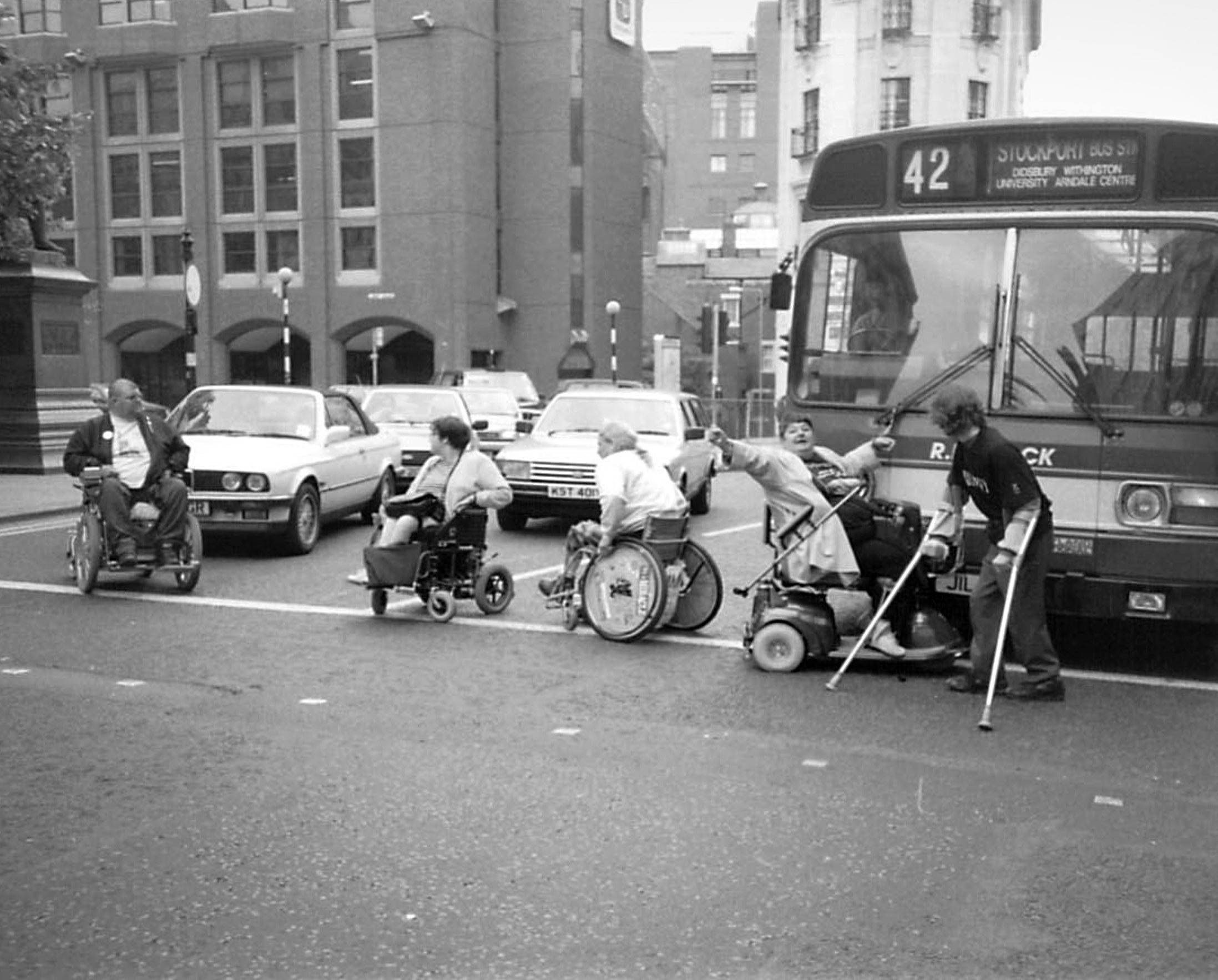Disabled people, like me, are still made to feel like an inconvenience when they travel
Sixty years after Rosa Parks refused to give up her seat on the bus, disabled people are still fighting for equality on public transport.


Is the comparison made by pressure group Transport for All between what is faced by disabled people in Britain and what was faced by Rosa Parks, heroine of the civil rights movement in 1960s America valid? It might be pushing it a bit, so let me explain how it came about.
Last December a woman called Gina Vettese boarded a train at Lancaster en route to see her family in Morecambe. Ms Vettese uses a mobility scooter which didn’t appear to be a problem on her outward journey. Staff helped her board the train. All was well, until it came time for her to travel home. She was told that the company Northern Rail forbade her from travelling unless her scooter was folded up and carried on as luggage.
This was impossible for her as her scooter didn’t fold. As a result she was forced to travel four miles to Lancaster station on her scooter, on her own, in freezing cold weather. The journey involved a steep and dangerous climb and as she navigated the unfamiliar route she was under the constant threat of her battery giving out. Which would have left her, well, you’ve probably heard the phrase about creeks and paddles.
A complaint was made to Northern Rail but you won’t be surprised to learn that the response didn’t satisfy Ms Vettese. So I got in contact with the company and the response was quite incredible. They apologised for the experience she had, adding they regretted that staff on the trouble free outward journey had “raised her expectations” by incorrectly applying the company’s policy and allowing her to travel. In other words, sorry our guys let you on the train: they shouldn’t have.
There was this too: “Due to the restricted maneuverability and stability of mobility scooters, we do not accept any type of scooter for travel on our services, regardless of size, unless it can be folded and carried on board as a piece of luggage.” The first issue with this advice is that a foldable version of a mobility scooter is an expensive piece of equipment which not everyone has access to and secondly, the advice presumes that Ms Vettese would be able to carry on the foldable scooter unassisted.
Which leads me to raise a question: how on earth is it acceptable in modern Britain to deny someone the right to travel because of the equipment they require for their disability?
Transport for All plans to fight this. They have just held a protest at Victoria Station in London, to highlight the issue of a similar policy operating on the Gatwick Express. While such policies are only in action at 3 of Britain’s 27 rail operating companies, this type of thing is not at all uncommon for those of us with disabilities who attempt to use public transport.
Some stations (I see you London Underground) aren’t accessible. Sometimes you need to call ahead and make arrangements that able bodied travellers don’t have to worry about. Sometimes you’re met with aggressive and unhelpful staff who claim you’re a health and safety hazard (that actually happened to me once).
This is not quite the same as what Rosa was protesting against; which was out and out racist hatred. Disabled people do face hatred, but in the case of public transport, and public bodies generally, the problem is more likely to be institutional callousness, contempt, and that good old British attitude that helping is “more than me jobs worf” and can’t be done because of “elf n’ safety”. Sadly, the end result is the same: discrimination.



Join our commenting forum
Join thought-provoking conversations, follow other Independent readers and see their replies